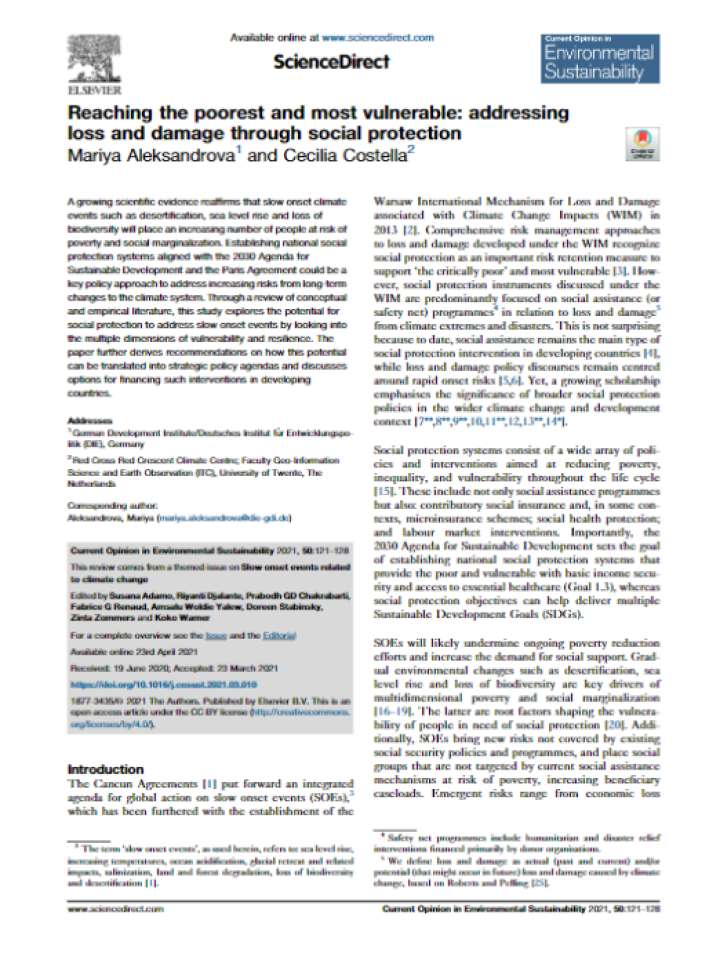Reaching the poorest and most vulnerable: addressing loss and damage through social protection
This study explores the potential for social protection to address slow onset events by looking into the multiple dimensions of vulnerability and resilience through a review of conceptual and empirical literature. Slow onset climate events such as desertification, sea level rise and loss of biodiversity will place an increasing number of people at risk of poverty and social marginalization. Establishing national social protection systems aligned with the 2030 Agenda for Sustainable Development and the Paris Agreement could be a key policy approach to address increasing risks from long-term changes to the climate system.
This study finds that many social protection systems in developing countries are nascent or remain fragile. Introducing complex risks and multiple objectives to underdeveloped social protection systems can create significant challenges. In this regard, a number of areas of policy, programming, and financing deserve key consideration. These considerations extend to the core functions of social protection systems, broadening social protection objectives to include environmental protection and ecological resilience elements, establishing sustainable financing modalities in vulnerable developing countries, and integrating social protection with climate policies in a coordinated and coherent manner.
Explore further
